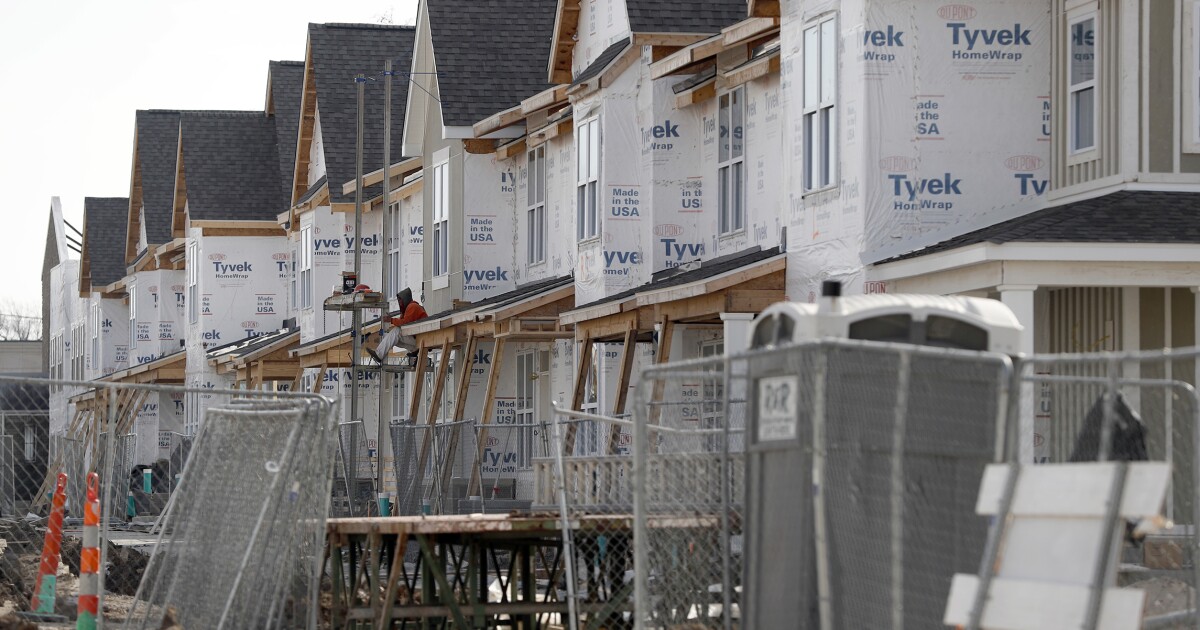

Biden administration officials outlined steps they are taking to increase the supply of affordable housing during a call with reporters on Tuesday, with billions of dollars from the $1.9 trillion American Rescue Plan going to local governments that finance new housing and, in some cases, overhaul their zoning regulations to make home building easier.
Slow housing construction following the Great Recession led to a dearth of some 1 million units over the next decade, officials said, with the market struggling to catch up and supply chain snags continuing to increase costs. The administration is aiming to help offset this shortage using funds from the controversial stimulus bill that was passed on a party-line vote in March 2021.
CHINA IS THE TOP FOREIGN BUYER OF US HOUSING AT $6.1 BILLION LAST YEAR
“Our goal here is to address the price pressures that the American people are facing,” said Deputy Treasury Secretary Wally Adeyemo.
According to a White House fact sheet, the Treasury Department has released guidance and a how-to guide for local governments looking to use the federal funding. Along with funding to help pay directly for new apartment construction, in some cases, there are incentives to remove what officials described as barriers to housing production, such as minimum lot sizes, prohibitions on building apartments, and mandatory minimums of parking spaces.
“This is an area where you are seeing a significant carrot approach,” said White House American Rescue Plan coordinator Gene Sperling. “So much of those barriers to affordable housing supply are set at local levels we cannot control directly, so you’re seeing the administration take a very strong carrot approach to use our resources in ways that leverage more zoning reforms that would increase housing supply and therefore expand affordability and lower prices.”
Most zoning restrictions are handled at the hyperlocal level of city and county governments, which the administration is hoping to influence with the funding. Some cities and states have begun easing their zoning restrictions as a way of making it easier to build new housing, though such moves have not come without controversy.
The Treasury Department previously “encouraged” local governments to dedicate a portion of the $350 billion available to them under the American Rescue Plan toward developing, repairing, and operating affordable housing units. Through the end of March, more than 600 state and local governments have budgeted some $12.9 billion in funding through the program, according to the fact sheet.
The administration is also working to increase “flexibility” to use the funds to finance affordable housing loans and expand eligible affordable housing uses they can cover. For example, the funds can be used to finance rental housing that will be subsidized for 20 years or longer for households at or below 65% of the local area median income.
The funding comes from the American Rescue Plan, which passed without a single Republican vote last spring and has since taken more than its fair share of criticism for helping to fuel inflation. Nonetheless, Biden administration officials continue backing the bill and promoting the programs it funds.
Housing prices rose steeply during the last two years but have begun to slow as the Federal Reserve raised interest rates over the last few months. Construction costs have also risen, and administration officials said some new funding will be needed to fill gaps between how much projects were projected to cost two years ago and how much they cost now.
CLICK HERE TO READ MORE FROM THE WASHINGTON EXAMINER
A previously released fact sheet includes examples of how the funding has been used by individual cities, including a $575 million project in the District of Columbia that will create or preserve more than 4,000 units of affordable housing, a $40 million project in Nashville that includes creating a database of subsidized housing options and investments in shelters and outreach for homeless individuals, and a $28 million project in Denver that funds 650 new or preserved housing units.







